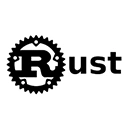Ownership is a core concept in Rust that governs how memory is managed. It is a set of rules that the Rust compiler uses to ensure memory safety without needing a garbage collector. Understanding ownership is crucial for writing safe and efficient Rust code.
Key Principles of Ownership
- Each value in Rust has a single owner: A variable that owns a value is responsible for cleaning it up when it goes out of scope.
- When the owner goes out of scope, the value is dropped: Rust automatically deallocates memory when the owner variable is no longer accessible.
- Ownership can be transferred: Ownership can be moved from one variable to another, which is known as "moving." The original variable can no longer be used after the move.
Example of Ownership
In the following example, we demonstrate how ownership works in Rust:
fn main() {
let s1 = String::from("Hello"); // s1 owns the String
let s2 = s1; // Ownership moves to s2
// println!("{}", s1); // This line would cause a compile-time error
println!("{}", s2); // This works because s2 owns the String
}
Explanation of the Example
In this example:
- We create a
Stringand assign it tos1. At this point,s1is the owner of the string. - When we assign
s1tos2, ownership of the string is moved tos2. After this line,s1can no longer be used to access the string. - If we try to print
s1, the Rust compiler will throw an error, indicating thats1is no longer valid.
Borrowing
Rust also allows borrowing, which lets you reference a value without taking ownership. Borrowing can be either mutable or immutable:
Immutable Borrowing
fn main() {
let s1 = String::from("Hello");
let len = calculate_length(&s1); // Borrowing s1 immutably
println!("The length of '{}' is {}.", s1, len); // s1 can still be used
}
fn calculate_length(s: &String) -> usize {
s.len() // Returns the length of the string
}
Mutable Borrowing
fn main() {
let mut s1 = String::from("Hello");
change(&mut s1); // Borrowing s1 mutably
println!("{}", s1); // Output: "Hello, world!"
}
fn change(s: &mut String) {
s.push_str(", world!"); // Modifying the borrowed string
}
Conclusion
Ownership is a fundamental concept in Rust that ensures memory safety and efficient resource management. By enforcing strict rules about ownership and borrowing, Rust allows developers to write safe and concurrent code without the overhead of a garbage collector. Understanding ownership is essential for mastering Rust and leveraging its powerful features.

